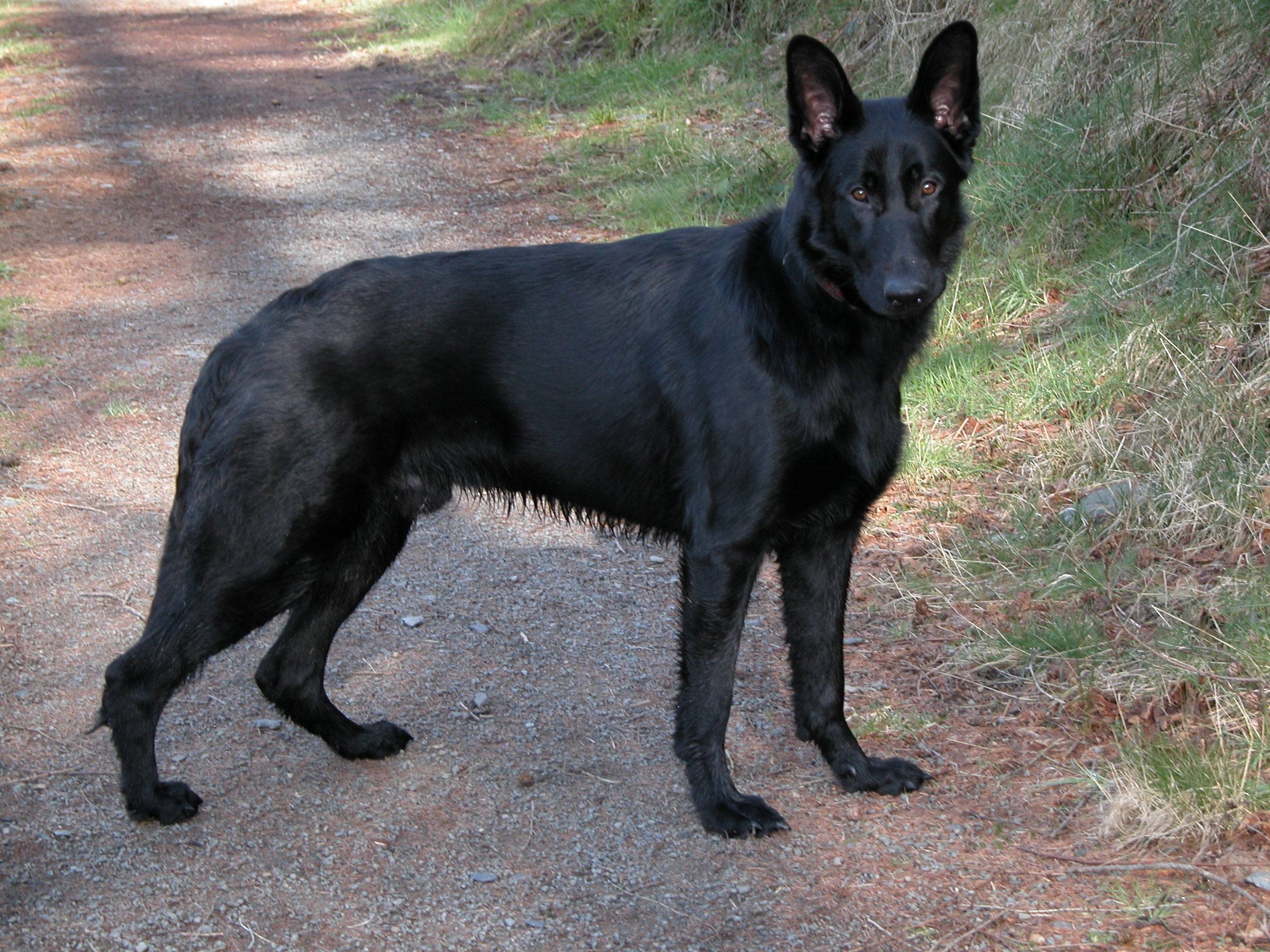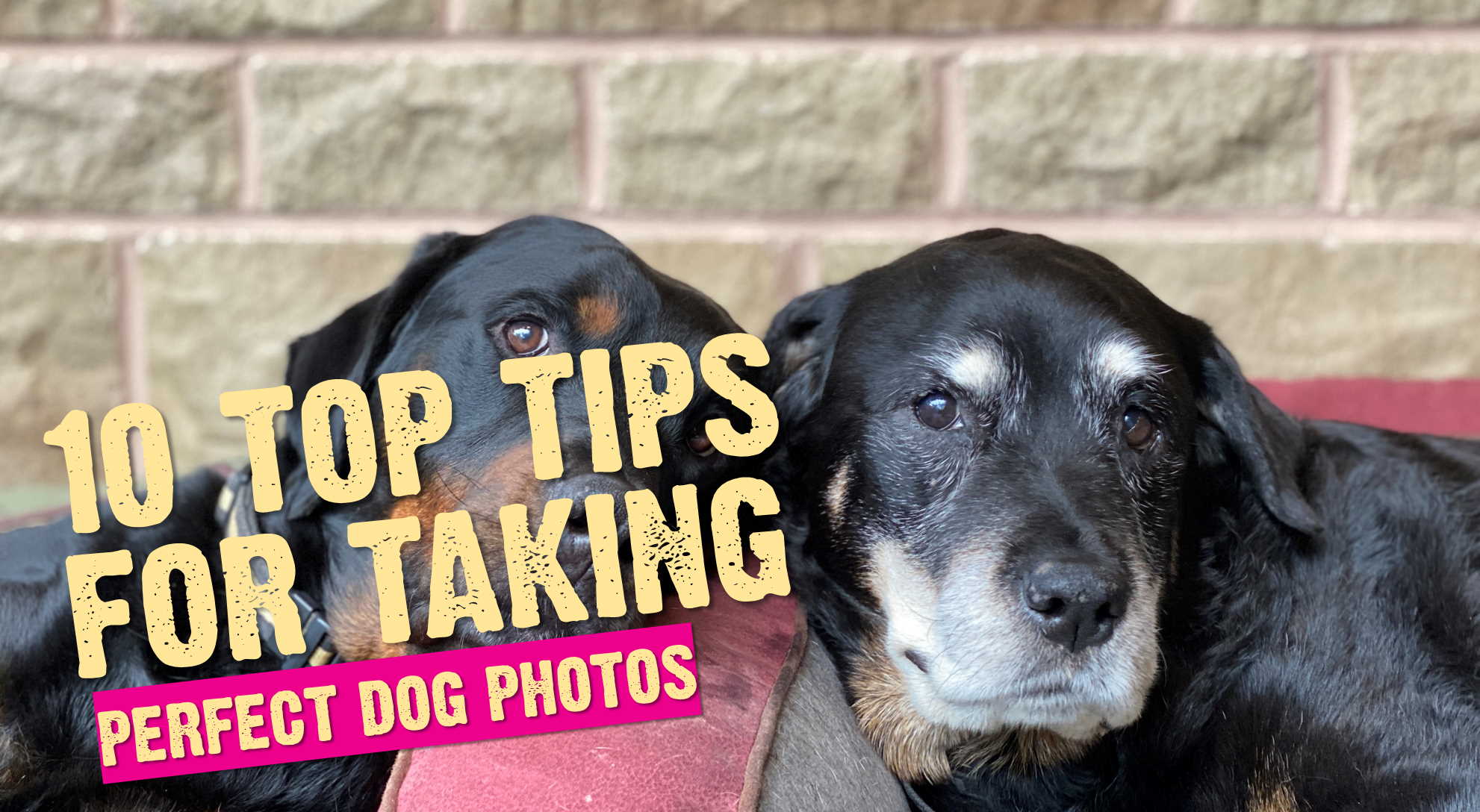Owning a dog with a predisposition toward nervousness is not an insurmountable obstacle. These top tips should help.

Once the dog has learned not to react at all to visitors, ask the occasional ‘dog-knowledgeable’ guest to nonchalantly and without any ceremony, simply drop a treat by the dog and then walk off in another direction. It is important they don’t try and make a fuss of the dog or offer the treat from the hand. Doing this regularly with different guests will accustom the dog to the idea that all visitors are not intruders to the ‘den’ and they are not intent on causing harm to the dog or his pack.
4) Complimentary therapies and treatments can be very helpful for aiding nerves. Diet also plays an important role. If a dog is unusually nervous, listless, depressed or lacking coat condition a change of food may be in order. There are specialist dieticians and holistic vets who may be able to greatly increase your dog’s physical and psychological well-being, thus improving the dog’s confidence and reducing nervousness. Try the Internet or Yellow pages and look for holistic vets and animal dieticians.
3) Keep in your mind at all times how your body language impacts the shy or nervous dog. You are a very large creature with an ability to make all sorts of frightening noises (hoovers, washing machines, shouting at the TV). Imagine another creature that was the equivalent distance in size to what you are to a dog and you will have an appreciation of how the shy or nervous dog may see you.
Now imagine that creature ‘bearing’ down on you with wide eyes, a booming voice and hands the size of saucepans on their way to touch your face. Frightening isn’t it? Well, to a shy or nervous dog that can be how they see the world of humans and your body language can be interpreted wrongly by the dog.
The fact that you are so much bigger than him and the fact that people at large generally have a tendency to approach dogs from a standing position thus bearing down on them can make the world a scary place. Always try and narrow the size difference with a nervy dog by getting down to their level. Avoid direct eye contact at all times, don’t wear sunglasses (to a dog, they look like a pair of wide, staring eyes that never go away) and remember how the dog sees the world from different angles than you. Body language is vital in helping nervous dogs overcome their fears.
2) Make use of other dogs. Dogs, as a rule, will copy and emulate their canine counterparts. If you have a nervous dog it can be a wonderful experience for him or her to meet a carefully selected friend. Just one other dog to begin with. Let them play, let the explore and the nervous dog will very soon begin to absorb the confidence of their bolder playmate and mimic their behaviour around people. It may take a while but regular ‘play sessions’ with other dogs can be the ultimate technique for curing many of the nervousness dog’s hang-ups about life.
Ensure the play mate is well selected, is playful but not boisterous and has no aggressive tendencies. Don’t, under any circumstances try and help a nervous dog by introducing them to an equally nervous playmate, it will double the problem. Meeting other dogs is a pastime best done socially where a ‘screening’ process can take place. Taking a nervous dog somewhere where there are likely to be lots of other dogs can be problematic. Explain your problems to friends, family, co-workers and be honest about your need to find a well-mannered, confident dog for yours to play with from time to time.
1) Consistency is a word used by all dog trainers and behaviour experts on a, well, consistent basis. Never is it more pertinent than in the case of the nervous or shy dog. You may be an erratic person, disorganised, impulsive, loud, prone to bad moods or shouting with none of these characteristics meant for the dog’s consumption. However even the most ebullient of pooches will catch the vibes if something’s ‘up’ in the household.
Ensuring stability, calm and an even tempered approach to home life will not only allow you to live longer and avoid an ulcer it will, above any other training tip or technique, help the more nervous of dogs to adjust to the world. Be patient, be calm, be understanding and be empathetic towards the dog’s disposition. Even if he or she has done something particularly naughty you must accept that there are certain ways to correct the problem that may work on 99.9{d4f4ff813a06e2c77cbb9c6effe011ebffe2f8986e44983e90e08c54deb62f63} of dogs, even on dogs you have previous owned, but on THIS nervous or shy pet, the wrong response from you could literally kill their spirit.
Enter your email and never miss out on receiving our best articles:







